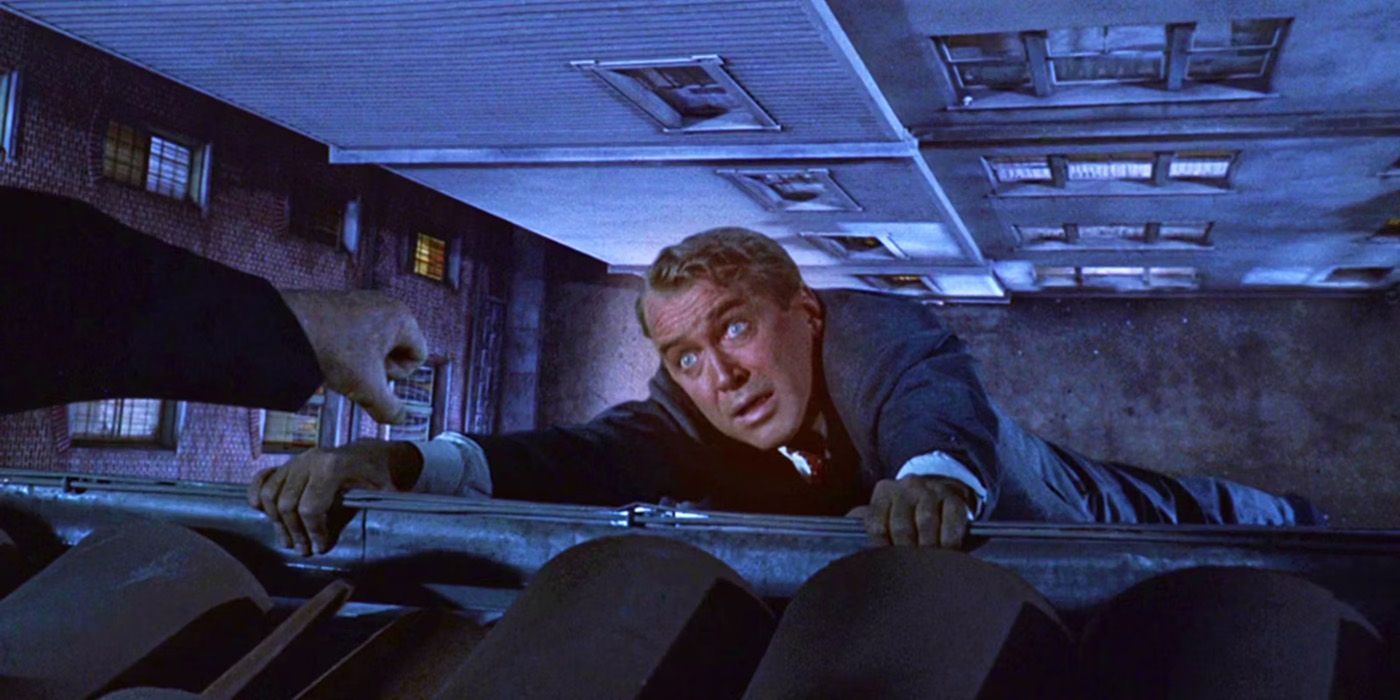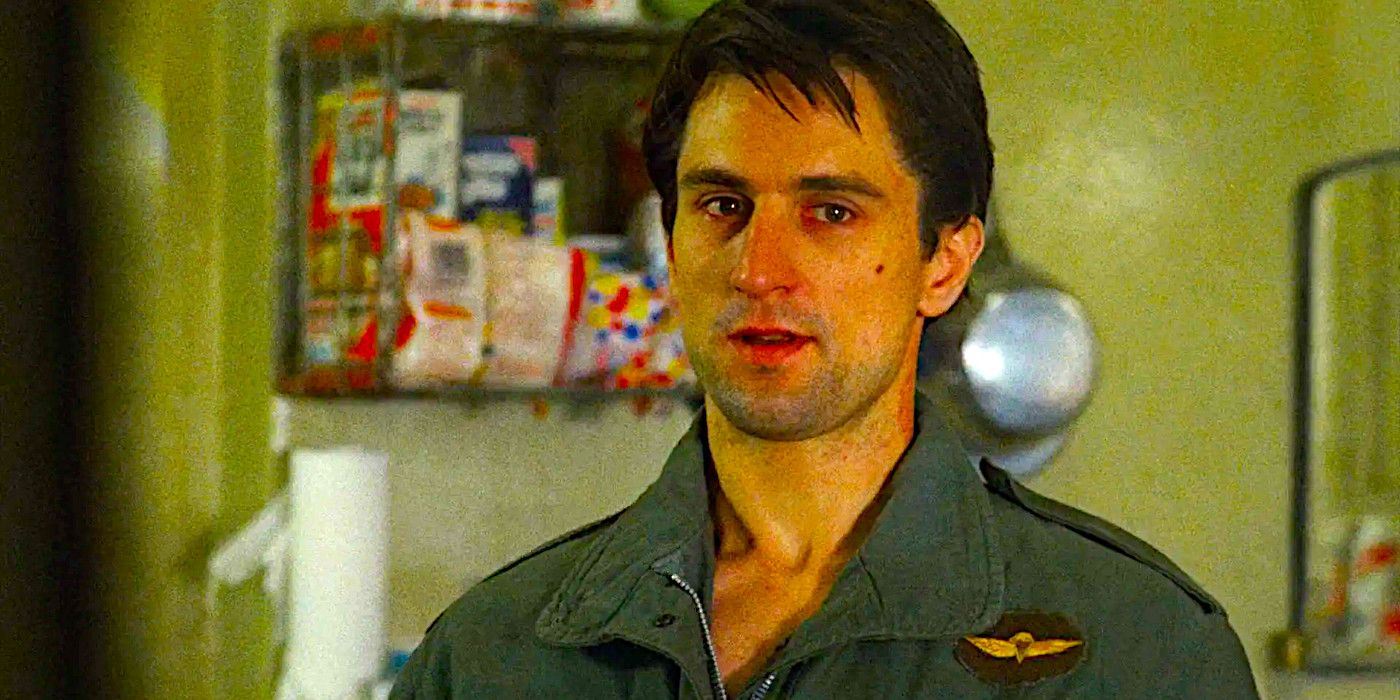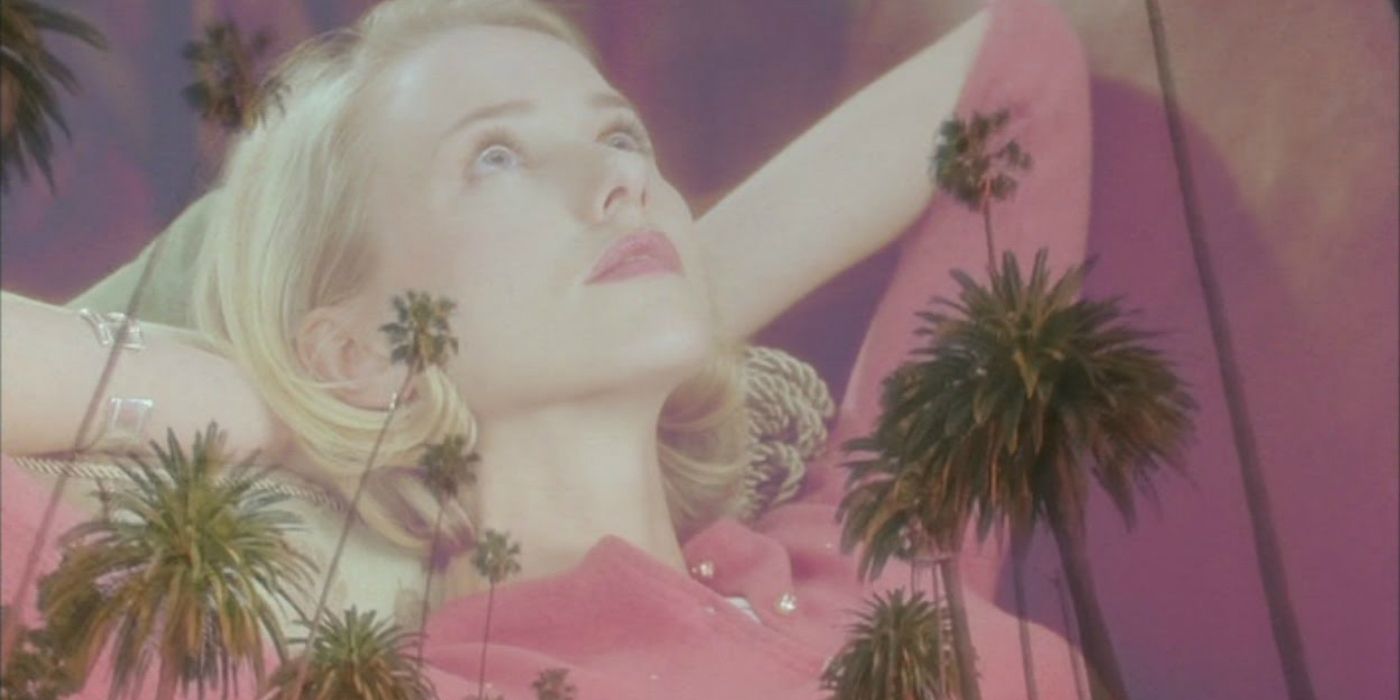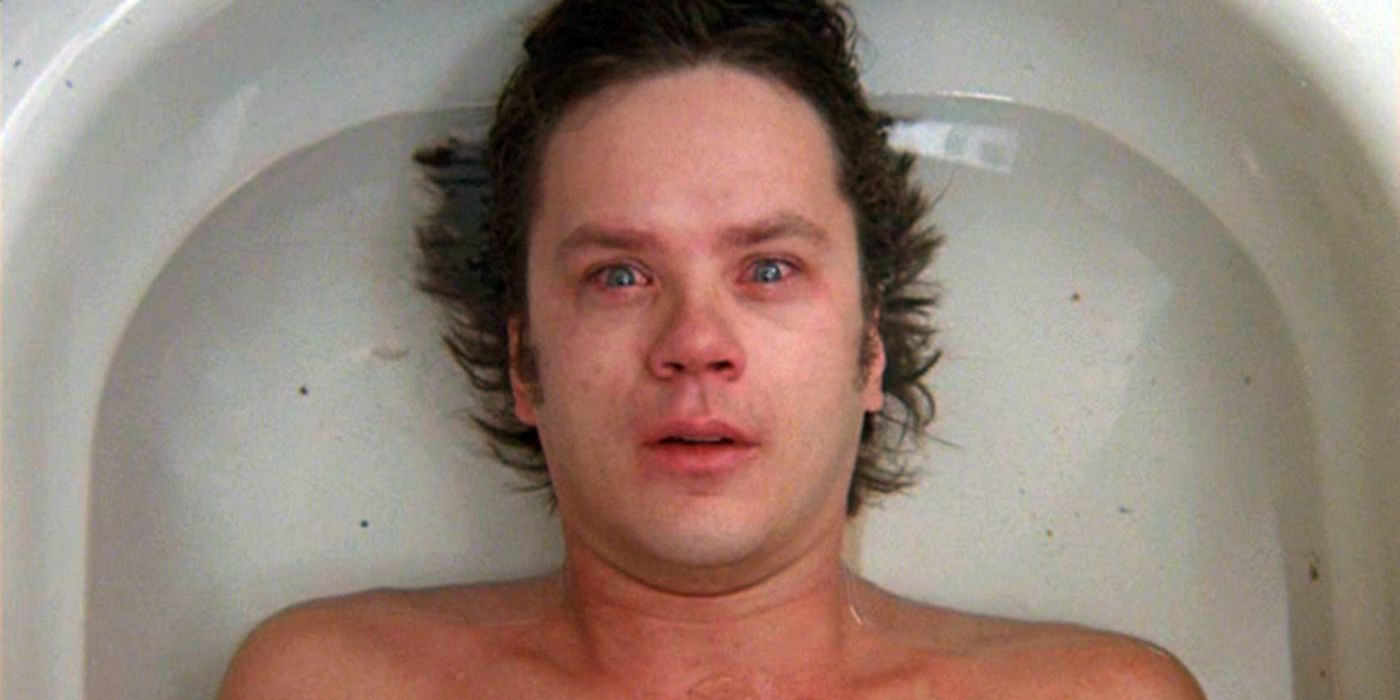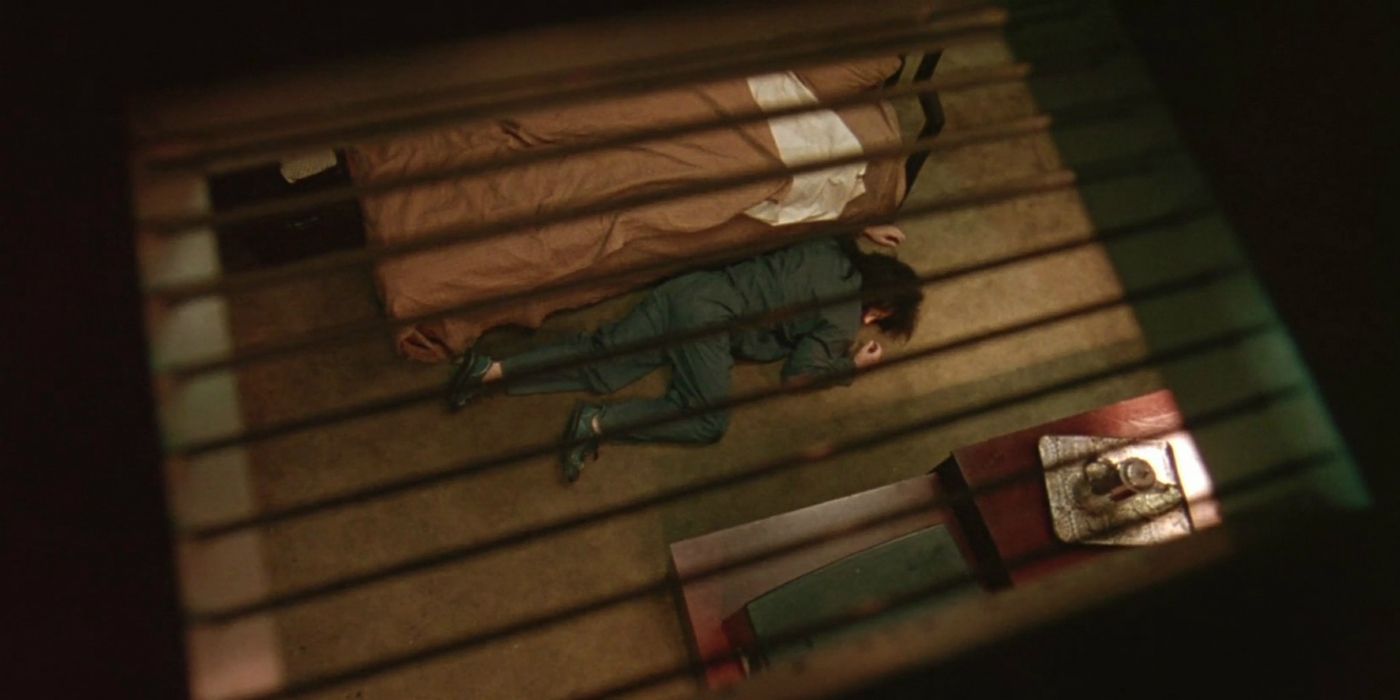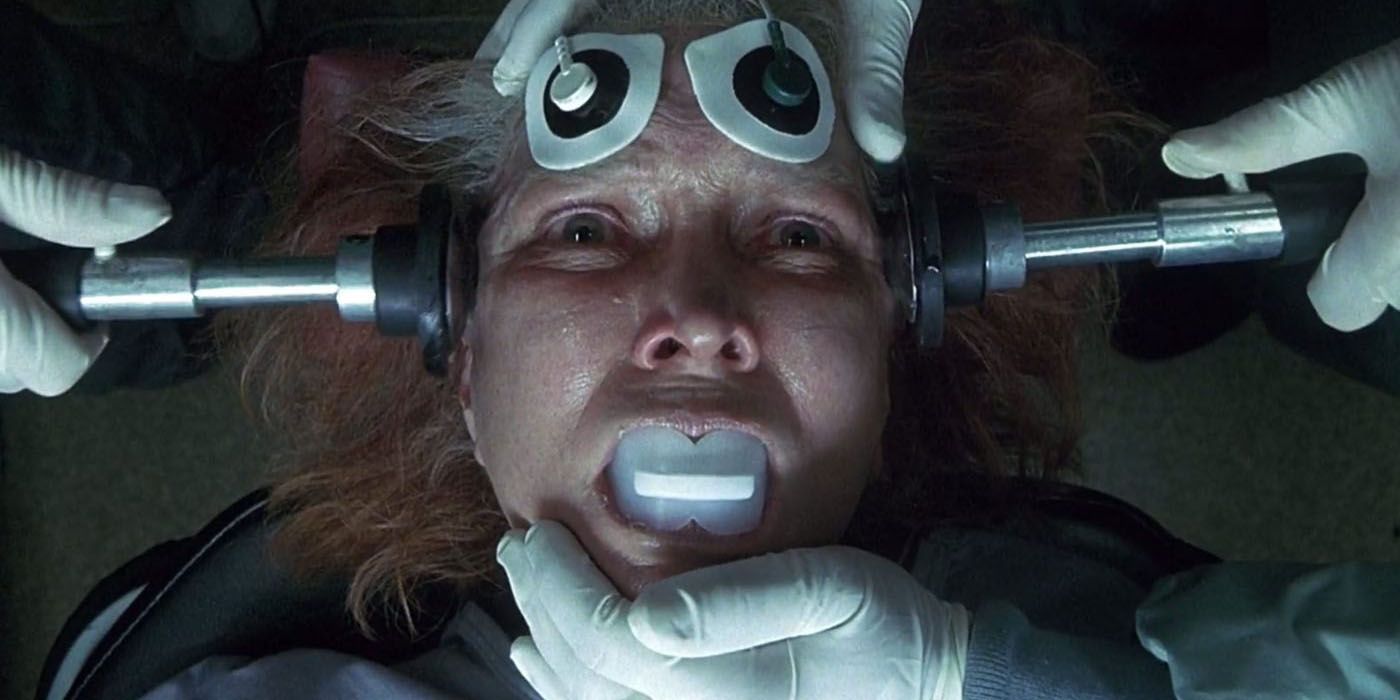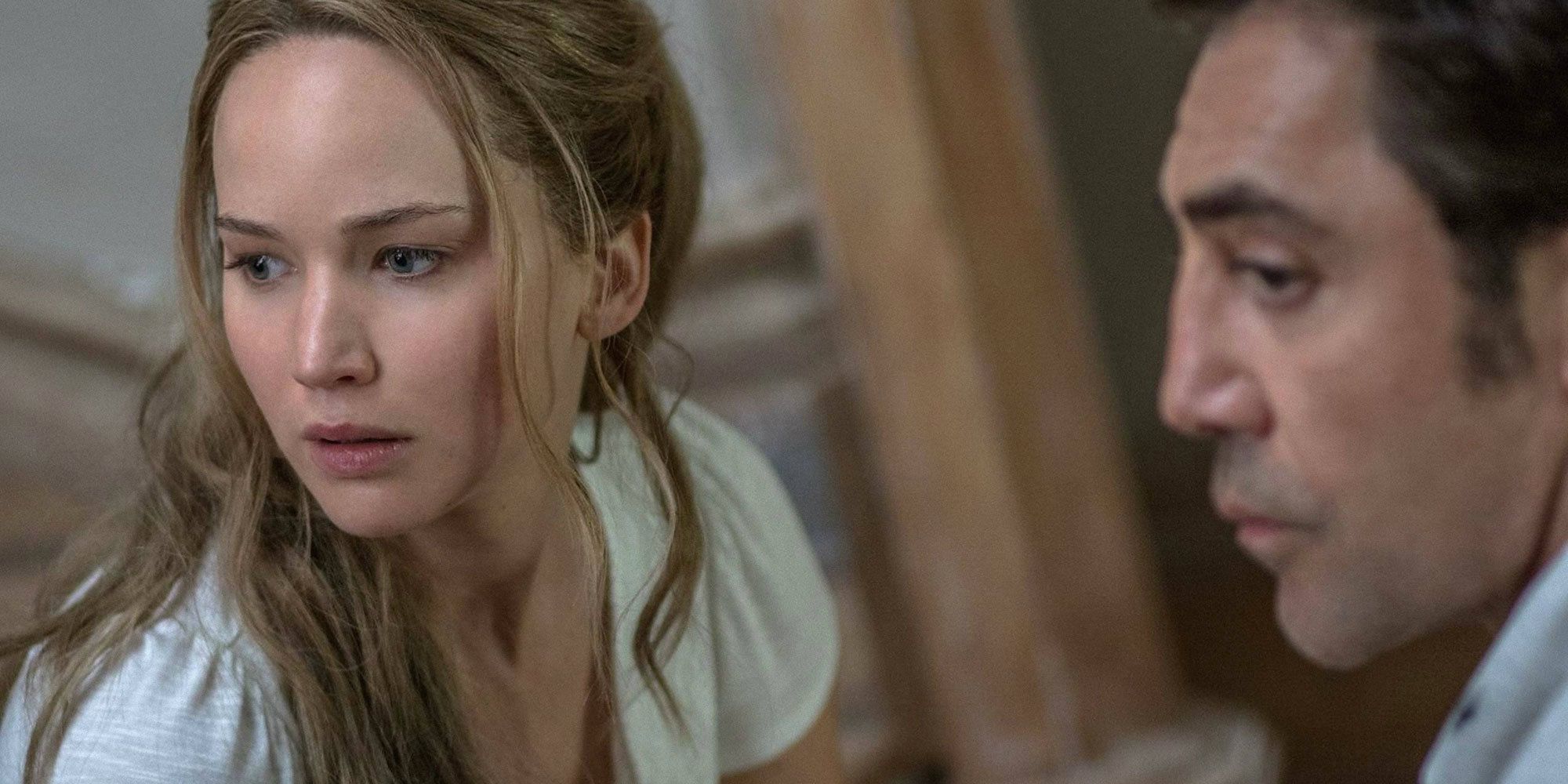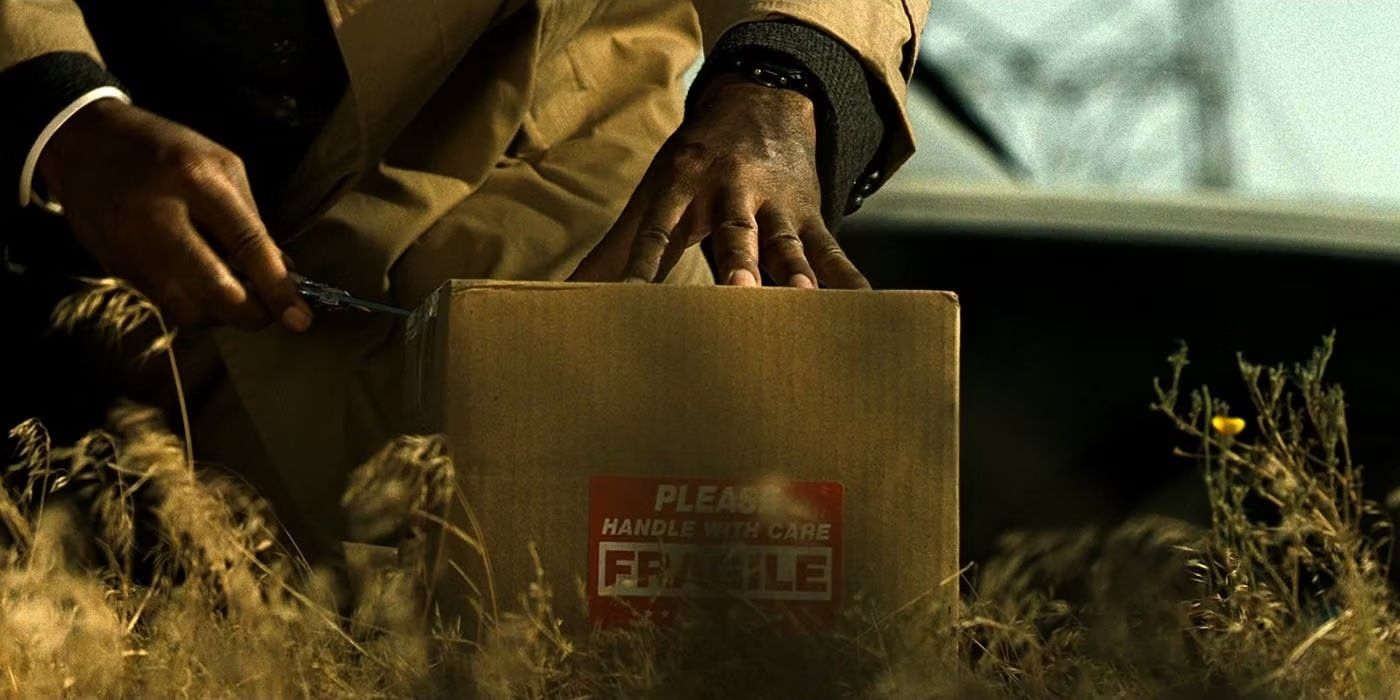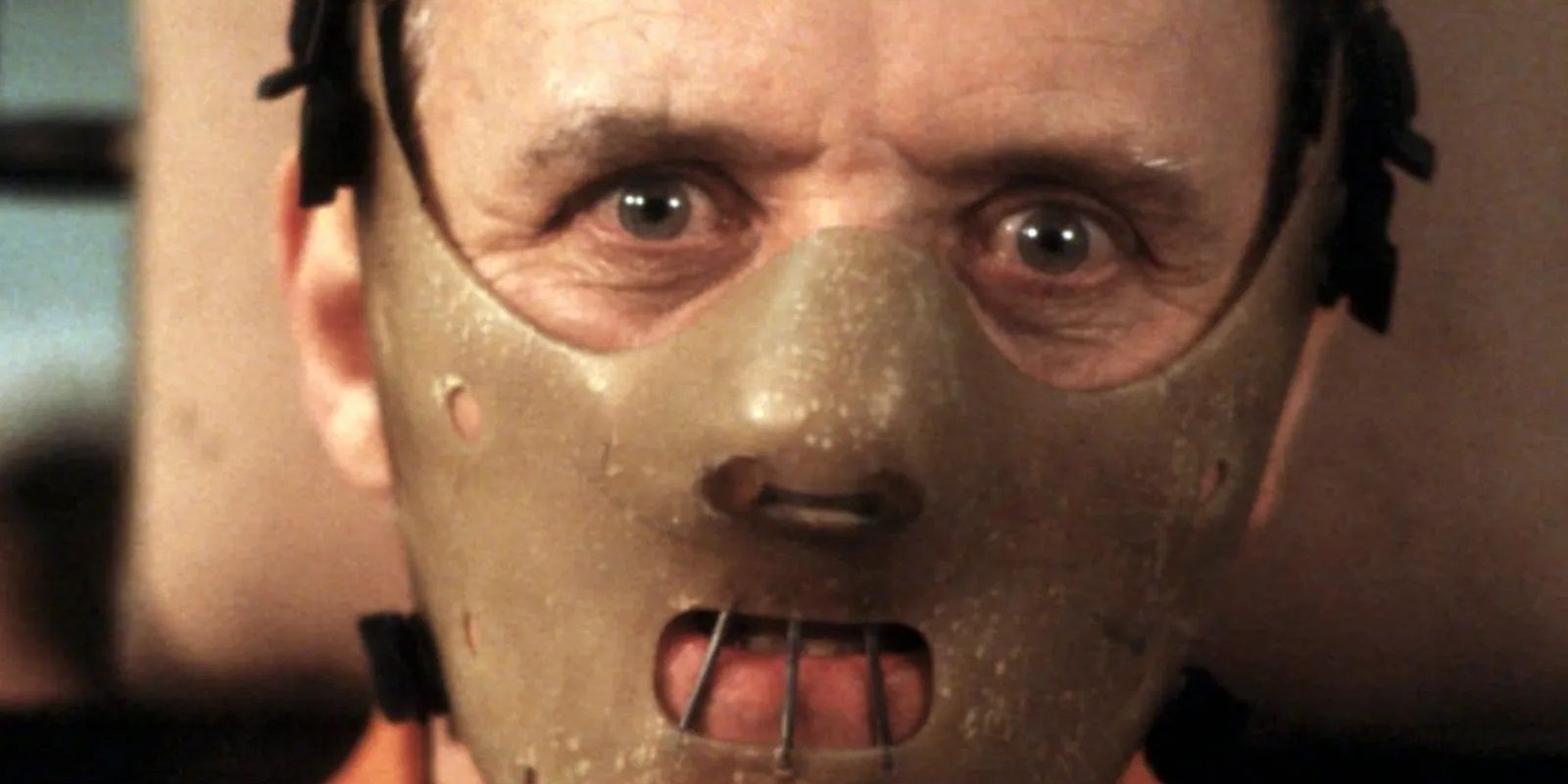Summary
- The most disturbing psychological thrillers dive into the darkest recesses of human nature and challenge viewers to confront uncomfortable themes.
- Filmmakers like David Fincher and Darren Aronofsky excel in creating thought-provoking and psychologically intense narratives in the thriller genre.
- Movies like The Game, Vertigo, and Requiem for a Dream leave a lasting impact on viewers by pushing boundaries and exploring themes of identity and trauma.
While thrillers can leave viewers on the edge of their seats with excitement, the most disturbing psychological thrillers get to the very heart of human nature and make audiences confront the darkest recesses of mankind. From heart-racing crime stories of sinister serial killers to surreal dreamscapes that shake the very foundations of perceived reality, the psychological thriller genre goes to extremes seldom seen in other types of movies. These tense and shocking stories can often be too much for viewers to bear, as the uncomfortable nature of taut narratives pushes audiences out of their usual comfort zones.
Like the best thrillers, the most disturbing releases in the psychological thriller genre confront the very nature of self as protagonists, anti-heroes, and villains are brought on wayward journeys of self-discovery. Filmmakers like David Fincher and Darren Aronofsky have made careers in this genre as their highly acclaimed and confrontational filmmaking styles address deeply psychological and thought-provoking themes. While they don’t always make for comfortable viewing, the most disturbing psychological thrillers of all time were certainly memorable.
10 The Game (1997)
Directed by David Fincher
The filmography of David Fincher has been littered with highly disturbing psychological thrillers that delve into the fractured nature of identity and how humans experience the world. One prime example of this was The Game, which saw Michael Douglas embroiled in a complex mystery where it was impossible to tell what was real and what part of the intricate game he had been signed up for as a birthday gift from his brother. The complex nature of The Game meant the lines between real life and the game began to blur as a larger conspiracy revealed itself.
The Game was disturbing because viewers, much like Douglas as the wealthy businessman Nick Van Orton, were left paranoid and questioning throughout its runtime, trying to decipher the true meaning behind its narrative. With a dark atmosphere and consistent tension, The Game was an unnerving viewing experience that toyed with the viewer through a unique and twisted sense of humor. While the ending of The Game didn’t quite deliver on the power of its premise, it still stood among the most psychologically disturbing thrillers ever.
9 Vertigo (1958)
Directed by Alfred Hitchcock
It’s a testament to the timeless appeal of Alfred Hitchcock that films like Vertigo still pack such a gutwrenching punch so many decades since they were first released. While this mystery story did not appear disturbing at first glance, as its slow-building narrative became increasingly darker throughout its runtime, viewers were left profoundly shocked by the time the credits had rolled. What started as a standard story of a private detective investigating the strange behavior of an acquaintance’s wife soon became a disturbing look at control, obsession, and the darkest recesses of human nature.
Acting legend James Stewart shed his good guy persona to play the deeply layered investigator Scottie Ferguson, whose chilling demeanor came to the forefront in his relationship with Madeleine Elster, played by Kim Novak. While Vertigo received a mixed reception when it was released as its darker narrative turned off audiences, it’s since been reevaluated as a contender of Hitchcock’s magnum opus. As a truly disturbing thriller, Vertigo was even voted the greatest movie of all time in Sight and Sound magazine’s 2012 poll.
8 Taxi Driver (1976)
Directed by Martin Scorsese
Martin Scorsese took home the Palme d’Or at Cannes for his disturbing psychological thriller Taxi Driver in 1976. As the perfect example of how 1970s filmmakers began to tackle darker themes amid the New Hollywood movement, Taxi Driver’s gritty atmosphere and cynical worldview captured the moral decay and harsh aesthetics of New York City during this time. With Robert De Niro as the lonely outcast cab driver Travis Bickle, Taxi Driver was a powerful character study with an immensely effective screenplay by Paul Schrader.
Bickle’s chronic insomnia and isolating loneliness made Taxi Driver a must-see masterpiece of the 1970s, whose disturbing nature was only outweighed by the sorrow at the heart of its title character. As Bickle sought vigilante justice to save a child prostitute played by a young Jodie Foster and take out Harvey Keitel as an oppressive pimp, a sense of vulnerable sadness lay at the core of its violence narrative. Taxi Driver was disturbing because it highlighted an epidemic of loneliness that continues to be seen in the horrifically violent crimes committed by troubled young men to this day.
7 Mulholland Drive (2001)
Directed by David Lynch
When something is disturbing, it’s likely to cause worry and anxiety, which are emotions that pervade much of the work of the acclaimed auteur David Lynch. This was true for his gloomy atmospheric directional debut, Eraserhead, right through the surrealist mystery Mulholland Drive. This highly unusual story blended a dreamlike atmosphere with a neo-noir style to produce a film that’s absolutely unlike anything else and oozed Lynch’s distinctive and often disturbing artistic voice.
Part of Mulholland Drive’s power was the way the lines between fantasy and reality began to blur as the characters’ identities became increasingly uncertain. While primarily the story of an aspiring actress named Betty Elms (Noami Watts), to try to sum up Mulholland Drive in just a few sentences would be a fool’s errand, as it truly has to be experienced to be understood. Through a fragmented narrative and disturbing imagery, Mulholland Drive peeled back the curtain on the dark underbelly of the City of Dreams.
6 Jacob’s Ladder (1990)
Directed by Adrian Lyne
Watching Jacob’s Ladder can feel like a fever dream wrapped up in a panic attack, as its disturbing nature and outrageous imagery make for heart-racing viewing. Through the story of a dissociated Vietnam War veteran dealing with the death of his child, Tim Robbins gave an extraordinary performance of a man spiraling into madness as he must decipher if what he’s experiencing is his reality or psychotic delusions. As a twisted look at trauma and PTSD, Jacob’s Ladder was an effective film that pushed audiences well out of their comfort zone.
Jacob’s Ladder was a nerve-shattering experience that was not for the faint of heart, but the pressing themes behind its surreal imagery made it all the more compelling. As a creepy cross between arthouse cinema, war movies, and Lynchian surrealism, this was one of the most disturbing movies of the 1990s. While it may not be for everyone, Jacob’s Ladder will certainly strike a chord with those looking for a disturbing psychological thriller.
5 Oldboy (2003)
Directed by Park Chan-wook
The disturbing nature of Park Chan-wook’s action-thriller Oldboy made it one of the most famous South Korean movies that gained widespread viewership in the West. Following the story of Oh Dae-su (Choi Min-sik), who was imprisoned in a hotel room for 15 years without knowing the identity of his captor, this tense story got to the heart of the psychological torment of extended isolation. With plenty of style, Oldboy loosely adapted the Japanese manga of the same name to produce a thrilling story filled with shocking twists and turns.
With impressive action sequences, intense fight scenes, and an iconic one-shot hallway showdown, Oldboy ticked all the right boxes when it came to spectacular entertainment value. However, the film’s disturbing nature was Oldboy’s shocking twist ending, which cemented its story as truly unforgettable. With a romantic subplot, the revelation that Oh Dae-su had fallen in love with and had a sexual relationship with his own daughter left viewers’ jaws on the floor as this disturbing reveal pushed the boundaries of acceptability in cinema.
4 Requiem For A Dream (2000)
Directed by Darren Aronofsky
Director Darren Aronofsky powerfully depicted the most disturbing aspects of addiction in Requiem for a Dream. As a psychological thriller based on a novel by the cult author Hubert Selby Jr., this film depicted four characters affected by addiction in different ways, as stories such as a heroin addict’s son’s struggles were juxtaposed with his mother falling victim to prescription medication. Throughout Requiem for a Dream’s runtime, the intensity of their habits only became more pronounced, and the movie was an emotional rollercoaster of dark intensity.
Requiem for a Dream was truly disturbing, as audiences were forced to watch the characters’ ambitions, delusions, and dreams being shattered by the harsh realities of existence. While the entire cast should be lauded for effectively demonstrating the horrors of addiction, Ellen Burstyn’s performance as Sara Goldfarb was particularly compelling. As Sara believed she was soon to appear on television, she started a crash diet to lose weight, only for the very foundations of her life to crumble below her feet due to a sudden and accidental addiction to diet pills.
3 Mother! (2017)
Directed by Darren Aronofsky
Mother! was a highly divisive film by Darren Aronofsky that continued to showcase his talent for creating highly disturbing and emotionally devastating cinematic worlds. With Jennifer Lawrence as the titular mother, this surreal story with biblical influences was a harrowing allegory for the treatment of Mother Earth, as its thought-provoking narrative, excessive violence, and singular artistic vision pushed many mainstream viewers past the point of comfort. As a darkly comic story about a young woman whose tranquil life with her husband was obliterated by the arrival of a mysterious couple, Mother! truly made for harrowing viewing.
With an environmental message about the way humanity has affected and destroyed Mother Earth, Mother! was simultaneously an uncomfortable and highly compelling film. With surreal imagery and a dreamlike narrative, Mother! was concerned with getting a visceral reaction from its audience rather than telling a straightforward and easily digestible story. While it may not be appreciated by all viewers, the disturbing metaphors in Mother! made it an unforgettable psychological thriller.
2 Se7en (1995)
Directed by David Fincher
David Fincher’s Se7en was a surprise sleeper hit that grossed $327,333,559 worldwide (via Box Office Mojo) and undeniably influenced the psychological thriller genre. As a dark crime story about a sinister serial killer committing murders based on the seven deadly sins, Se7en’s innovative depiction of a calculated killer and truly shocking twist ending made it one of the most memorable movies of the 1990s. As Fincher’s breakout movie after the lackluster response to Alien 3, Se7en was also a definitive film for its stars Brad Pitt, Morgan Freeman, and Kevin Spacey.
Se7en was a highly disturbing movie throughout, but Se7en’s twist ending, which showcased Pitt’s character’s wife Tracy Mills’ severed head being delivered in a box, made for one of the bleakest movie conclusions ever seen on screen. The dark nature of Se7en proved that audiences could connect with stories that pushed them out of their comfort zone, and it allowed subsequent movies like Prisoners and Nightcrawler not to shy away from the darker sides of the human capacity for evil. Se7en was brutal and relentlessly grim, but that’s the reason it’s still remembered so vividly almost three decades later.
1 The Silence Of The Lambs (1991)
Directed by Jonathan Demme
Although he wasn’t the first or last to play the cannibalistic serial killer Dr. Hannibal Lecter, Anthony Hopkins’ performance in The Silence of the Lambs defined the character. As one of just three films to win Academy Awards in all the major five categories, this Thomas Harris adaptation was as compelling as it was disturbing. In the story of FBI trainee Clarice Starling (Jodie Foster) tracking down a killer named Buffalo Bill, disturbing tension was on full display as she sought Lecter’s advice in a thriller that edges on outright horror.
It Happened One Night
,
One Flew Over the Cuckoo’s Nest
, and
The Silence of the Lambs
are the only movies to win Best Picture, Best Director, Best Actor, Best Actress, and Best Adapted Screenplay at the Academy Awards.
The Silence of the Lambs was packed with heart-racing suspense, boosted by impeccable performances from the entire cast. As Clarice spoke to Lecter to get into the mind of a killer, the truly disturbing nature of those compelled to murder was brought to the forefront, and Hopkins made viewers’ skin crawl with his offputting but oddly charismatic portrayal. The Silence of the Lambs was the gold standard of disturbing psychological thrillers, and its innate power has yet to be topped.
Sources: BFI



